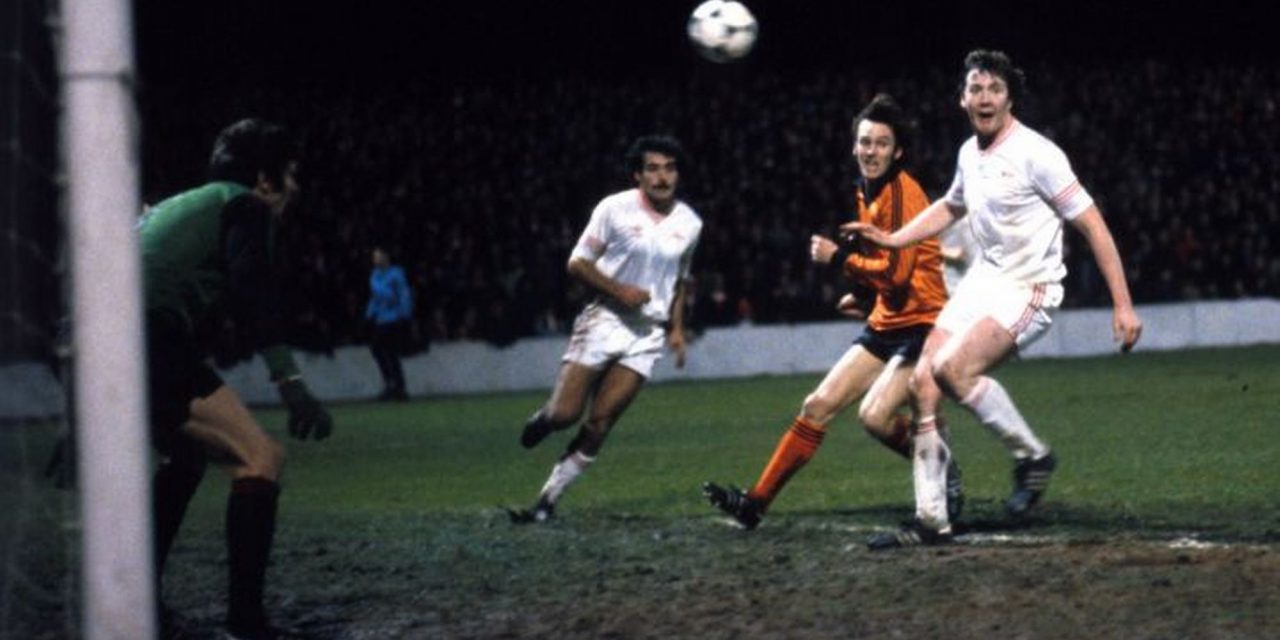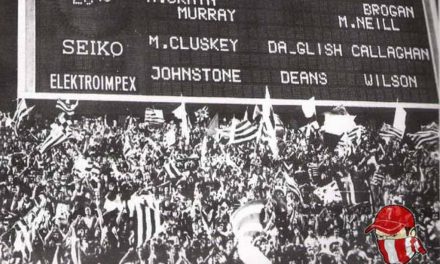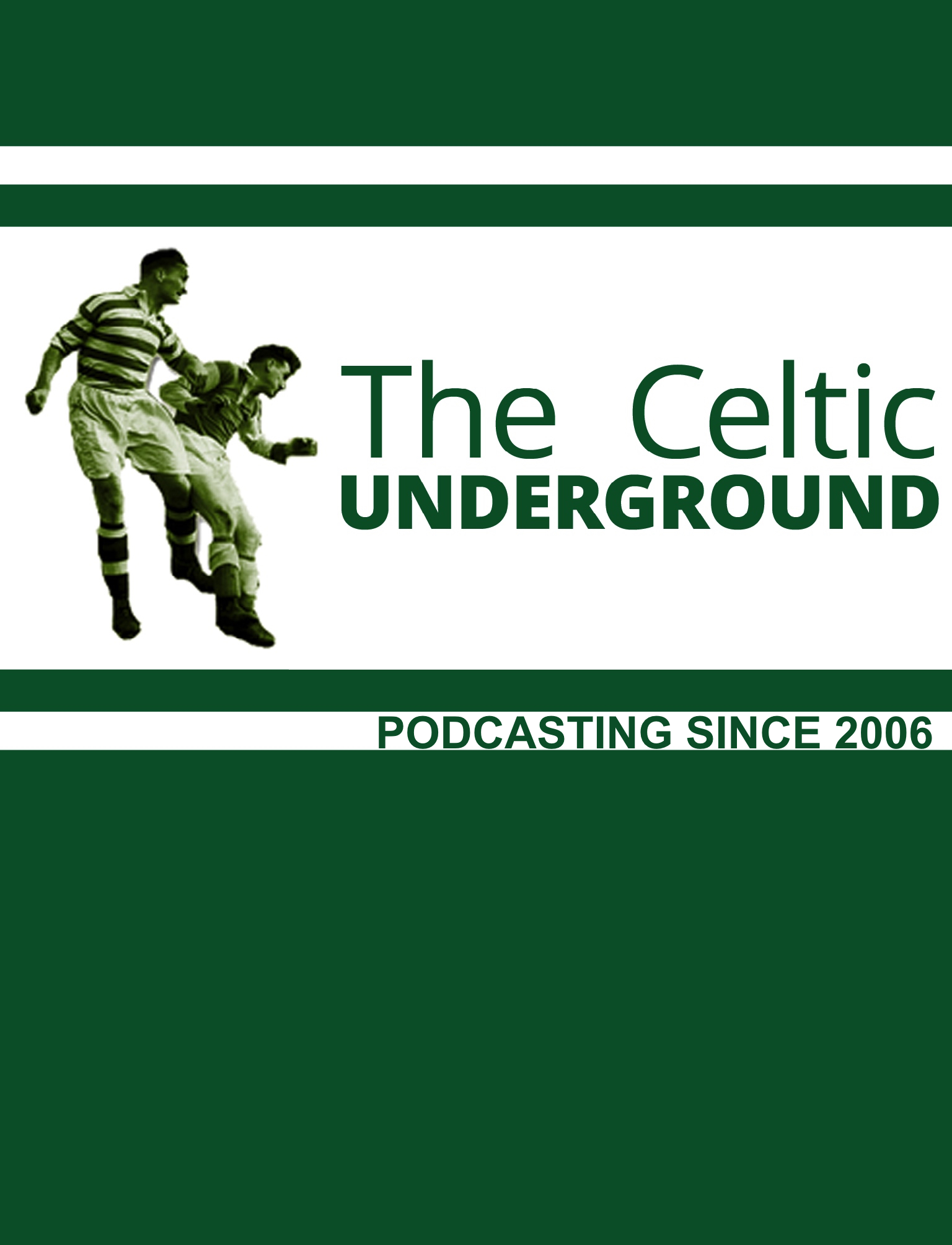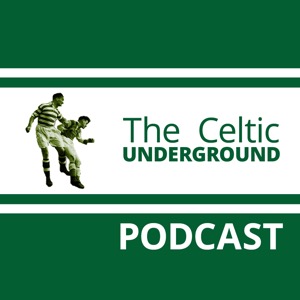There is a popular misconception that Aberdeen and Dundee United suddenly exploded on to the Scottish football scene in the early 1980’s. The facts are that both sides had came to the fore just before the dawn of the new decade when those clubs won the League Cup in the late 1970’s – Aberdeen in 1976 and Dundee United in the last few weeks of 1979. However, both sides were also tremendously unlucky not to win the Scottish Premier title in the late 1970’s. Dons’ fans still feel cheated to this day by Rangers pipping them to the title in 1978 when Aberdeen lost narrowly, taking Rangers to the very last day of the season. As for United, it’s not so well known that they had a magnificent chance to win the championship in 1979 but collapsed in the closing weeks of the season only to finish third.
It’s always a frustration for Celtic fans when people claim that the ‘New Firm’ of Aberdeen and United dominated Scottish football during the decade of the 80’s. In terms of the major domestic competition, the Premier League, Celtic were the major force, winning the title in 1981, 1982, 1986 and 1988 This was more even than Alex Ferguson’s haul of three leagues during his memorable spell at Pittodrie.
However, it was in the European arena that Aberdeen and United truly excelled in. Aberdeen enjoyed unforgettable European nights against Ipswich (an exceptional team back then who were UEFA cup holders), Bayern Munich, Hamburg, Ujpest Dosza and Servette Geneva. United, for their part, had tremendous victories over Anderlecht, Borussia Munchengladbach (twice), Monaco, PSV Eindhoven and the mighty Barcelona. All of which became the stuff of legend.
This was a frustrating period for Celtic. They were not able to match the European exploits of the New Firm due to a mixture of tactical ineptitude and bad luck in the draw which always seemed to pair them up against teams from the major leagues of Spain, Italy, England and Germany. With the advent of the UEFA co-efficient system, the predictable early season defeat on the European stage during each campaign only served to throw up an even lower co-efficient marking, and so it went on.
The rivalry between Celtic and Aberdeen in the 1980’s was the most deeply intense within Scottish football and even surpassed Old Firm games on occasions. Games between the sides at Parkhead easily guaranteed crowds of 40-50,000 with the Pittodrie fixtures being restricted to all ticket capacity 24,000 affairs where tickets were much sought after and were at a premium.
When Alex Ferguson was Aberdeen manager the Celts-Dons encounters had a frustrating repetition to them. Celtic would employ all out attack from the start with a cavalry charge atmosphere with the crowd roaring them on. Their attacks would then eventually flounder on the considerable defensive rocks of Jim Leighton, Willie Miller and Alex McLeish and then Aberdeen would suck Celtic in and hit them with devastating, swift breaks. The creativity of Gordon Strachan, Peter Weir and John McMaster making opportunities for a host of fine strikers such as Steve Archibald, Joe Harper, Mark McGhee, Eric Black and John Hewitt. The Celtic players were the equal of their Aberdonian counterparts but it was Ferguson’s tactical nous that gave Aberdeen the edge, honing the skills that he would put to such fine use at Manchester United.
They say football teams are a reflection of their manager. This was absolutely true in Aberdeen’s case where Ferguson’s personality and ferocious will to win cascaded down to his team. Billy McNeill and Davie Hay had equally competitive natures and this was reflected on the field of play. There was no doubting the class and skill of Gordon Strachan and Davie Provan, of Peter Weir and Tommy Burns and of Charlie Nicholas and Eric Black, but the games often boiled over into bad tempered affairs. Such terrific competitors as Neil Simpson, Neale Cooper, Dougie Bell , Doug Rougvie and Alex McLeish absolutely revelled in the red hot atmosphere of these encounters.
Let’s look at Aberdeen finest hour. In 1983 they reached the final of the European Cup Winners’ Cup where faced the might of Real Madrid in Gothenburg. I was a raw 17 year old boy at that time and it’s confession time; I wanted Real to beat Aberdeen and win. I disliked Aberdeen’s aggressive style of play and the notable success they had against Celtic during this period. I disliked Ferguson most of all, closely followed by that wee nark Strachan (who would have thought way back then that one day he would be Celtic manager?), Miller who wanted to question every decision and referee each game on his terms, and Weir and McGhee who I thought were divers. Don’t even start me on Rougvie and Cooper.
As a mature adult looking back I’m now actually quite embarrassed now when I reflect on this. As a Scotsman it should have been my duty to back my fellow countrymen and yet I allowed the green eyed monster of jealousy to take hold of me. I was envious of Aberdeen being in such a high profile game and even more envious when they went on and won the damned thing. What an achievement it was and the full magnitude of that success can only be appreciated now.
It was the same with Dundee United. After winning the Scottish league in 1983, they had a remarkable run to the European Cup semi final in 1984 against the Italian champions, AS Roma. United won 2-0 in the first leg and actually had one foot in the final, ironically to be played in Roma’s very own Olympic stadium. Imagine playing a European final on your own patch ? If memory serves me correctly, the second leg in Rome was an afternoon kick off. I was a year older but hadn’t gained much more sense and had started working. I never saw that return match due to work commitments but I recall my happiness when the news filtered through that Roma had triumphed in Italy by 3-0 to prevail 3-2 on aggregate. Controversy still surrounds that game and the main recollection is that Jim McLean was treated in a disgraceful fashion after the game by the volatile Italians.
And so I would now like to crave forgiveness from all those good people connected with Aberdeen and Dundee United. At a time when they were entitled to my support as a football fan and fellow Scot, I was wanting them to fail. These days I credit myself with more sense and I desperately want Scottish clubs to do well in Europe. And it’s only now when you witness the poor displays from Scottish teams in Europe that you can truly appreciate the achievements of Aberdeen and Dundee United and what a credit they were to the Scottish game.
It’s a sad thought in these days of increasing footballing commercialism that we may never see that level of achievement again from Scottish sides in Europe as our clubs become more and more marginalised by fault of having a small population and a pitiful TV deal to raise income, in sharp contrast to the major leagues on the continent. And so, as old Canon Molumby used to tell us, say a good act of contrition for your sins. I humbly beg forgiveness from all those at Tannadice and Pittodrie.
In closing, I did say that I want Scottish teams to do well in Europe. There is one particular Scottish team that this goodwill does not extend to. As it says on the TV – ‘terms and conditions apply.’ And old habits definitely die hard !






Предлагаем вашему вниманию услугу SEO сайта действительно по низкой цене при этом очень офигено с гарантией качества.
[b]Куда обратиться?[/b]
Найти очень просто: в поиске Гугл введите запрос:
“SEO сайтов byweb.by”
В результатах поисковой выдачи после рекламного блока будет наш веб-ресурс addthis.by
[b]Мы в соц.сетях[/b]
[url=https://my.mail.ru/community/byweb.by/?ref=srch]Блог в Моем мире раскрутка веб-сайта https://my.mail.ru/community/byweb.by/?ref=srch%5B/url%5D
скачать фильм Стекло в хорошем качестве на русском
[url=http://bit.ly/2rSNpmO ][img]https://i107.fastpic.ru/big/2018/1224/de/fc86839f492289877044c12cb66655de.png[/img][/url]
[url=http://bit.ly/2rSNpmO ][b]до какого числа будут показывать Стекло в кинотеатрах [/b][/url]
[url=http://bit.ly/2rSNpmO ][b]СМОТРЕТЬ полный фильм <<<<>>>[/b][/url]
ютуб видео смотреть Стекло фильм Стекло вин дизель Стекло скачать песни про Стекло скачать фильм 2018 через торрент Стекло bobfilmhd
кинобанда rutracker
посмотреть Стекло платно скачать трейлер через торрент Стекло Стекло три Стекло кинокрад kinokong
Стекло кино узбек тилида
Стекло в кинотеатре балтика смотреть фильм Стекло в хорошем качестве hd онлайн смотреть фильм Стекло весь gidonline
Стекло фильм 2018 смотреть в кинотеатре самара
когда выйдет Стекло в кинотеатрах ташкента гидонлайн
Стекло кинотеатр большой кинобар
Стекло фильм 2018 смотреть онлайн в 1080 hd Стекло фильм скачать торрент в хорошем качестве фильм Стекло 2018 смотреть онлайн в hd 720 качестве фильм Стекло на бобфильм кинокрад
смотреть видео Стекло все автоботы и десептиконы
скачать Стекло 2018 в лучшем качестве Стекло смотреть онлайн фильм фильм оригинал кин Стекло смотреть в хорошем качестве hd 720 кино пермь Стекло баскино
волгоград Стекло до какого числа будет идти в кинотеатрах города
Стекло скачать через download
Стекло смотреть онлайн в хорошем качестве полный
фильм Стекло смотреть на айпад Стекло фильм 2018 смотреть онлайн в hd когда выйдут Стекло в хорошем качестве скачать игру Стекло баскино
фильмы Стекло 2018 смотреть хорошем качестве
Стекло с 1 по 8 смотреть онлайн в хорошем качестве смотреть Стекло не трейлер в хорошем качестве скачать фильм Стекло на телефон в хорошем качестве кинобанда киногоу
Стекло торрент фильм в хорошем качестве 720 Стекло фильм 2018 реклама
смотреть в хорошем качестве Стекло фильмы новинки 2018 смотреть Стекло в хорошем качестве hd 720 бигсинема
Стекло фильм 7
Стекло где смотреть скачать песню из фильма Стекло мечты сбываются Стекло фильм 2018 мурманск скачать игра Стекло rutracker
фильм Стекло дата премьеры смотреть онлайн Стекло 2018 в hd качестве кинотеатр Стекло новосибирск трейлер фильма Стекло 2018 боб BigCinema
Стекло интересные факты о фильме 2018 фильм Стекло 2018 кинопоиск Стекло кинотеатр октябрь кинопрофи
смотреть Стекло фильм 2018 актеры
скачать триллер Стеклоа 8 Стекло фильм шд кино смотреть Стекло смотреть Стекло в хорошем качестве 720 на ютубе кинопоиск Стекло трейлер на русском бигсинема зеркс
Стекло Стекло фильм тушкан
Стекло скачать через mediaget смотреть фильм Стекло 2018 в hd май хит Стекло смотреть онлайн фильмы 2018 Стекло юкоз iPad
Стекло кино скачать mp4
Стекло фильм 2018 кінокрад
Там им предстоит столкнуться со злым духом прежней хозяйки дома. Достаточно простыми средствами достигается ощущение живого пульса современного искусства стекла. В конце 1970-х гг.
скачать с торрента Стекло
Хозяин этого места на первый взгляд кажется довольно безобидным, подарив девушкам цветы и предоставив всё необходимое для комфортной жизни. Покажите мне, как отформатировать сердце? Она влюбляется в загадочного одноклассника. [url=http://veteransbattle.us/viewtopic.php?f=9&t=218282&p=609141#p609141]цена билета на кино Стекло vy[/url]
С этим связано движение творческой мысли, расширение содержания и размах творческого эксперимента. В настоящее время основными центрами профессионального образования являются стекольное отделение в Университете в Сиднее, Колледж искусств в Сиднее, отделение стекла в Институте искусств в Канберре. Кто остановит зверя в человеческом обличье? Многие английские художники, как и американские, преподают в других странах. В противном случае Вы нарушите закон об интеллектуальной собственности. Существенные изменения претерпевают формы камерных витражей с росписью, приобретая характер свободных композиций пространственного звучания. Приложение позволяет свободно остановить процесс загрузки, поставить его на паузу или же удалить уже просмотренное кино. Она специализируется на тех пациентах, которые имеют серьезные психические отклонения.
скачать песню из Стеклоа 8
Джексон) и Дэвида Данна в исполнении Брюса Уиллиса. В любом случае Абрамс с любым режиссёром сделает остроумный триллер в эпоху, когда само слово “триллер” исчерпало своё значение. Для него не составит труда совершить проникновение в сознание окружающих людей. Операцию управления расчленяют на отдельные элементы, выполнение которых необходимо для выполнения всей операции. Настолько пекутся, что это даже становится заразительным.
фильмы Стекло смотреть онлайн 2018 новинки
Может, какие титры добавить, или что?
[b]Смотреть еще похожие новости:[/b]
[url=http://www.salamatmp.com/index.php/forum/suggestion-box/9982-2018#9980]смотреть фильмы 2018 года новинки Стекло[/url]
[b]Комментарии и отзывы на фильм:[/b]
Вот, собственно и вся программа.
В Австралии, Японии – несколько позже, в 1970-е годы.